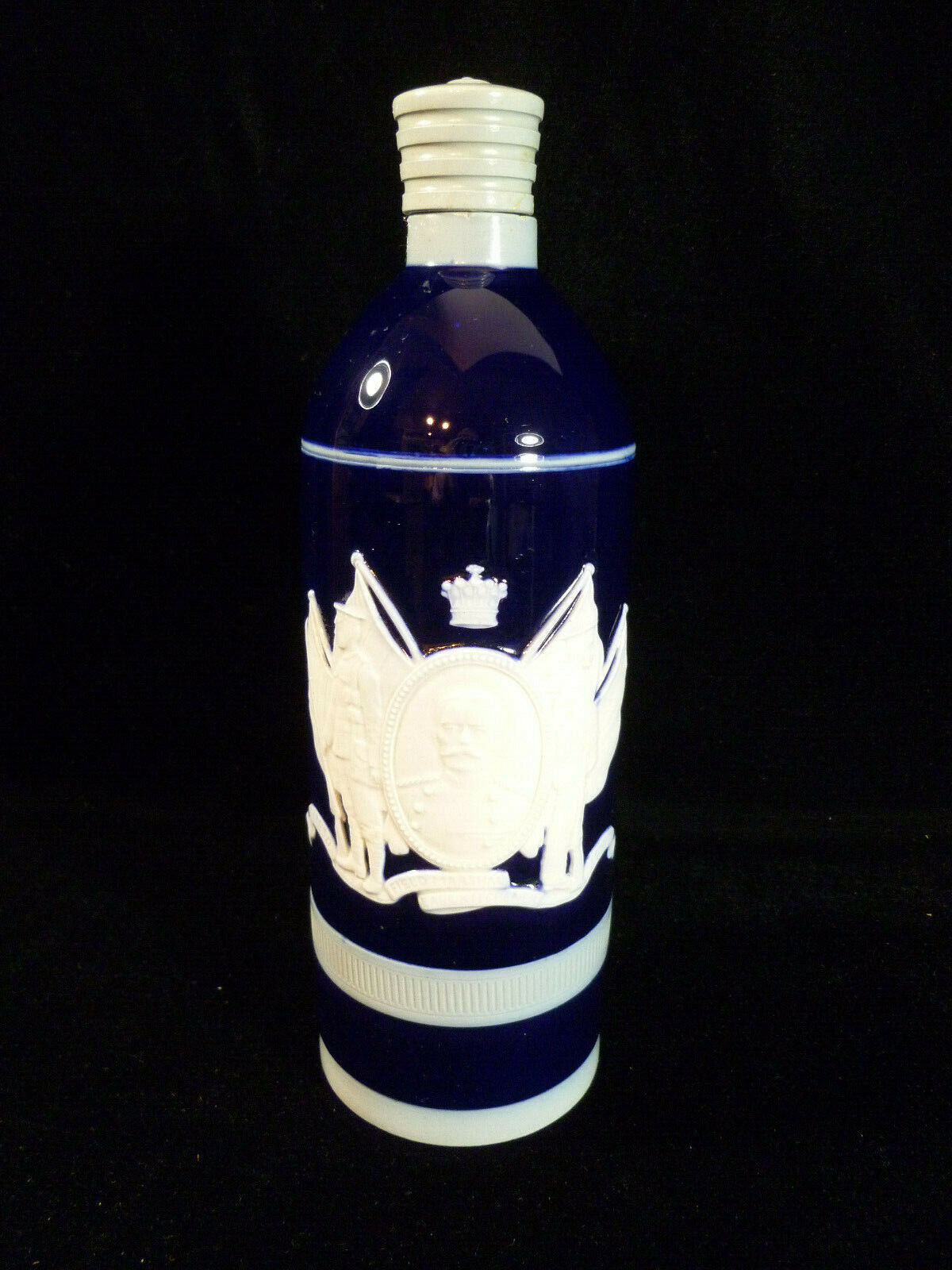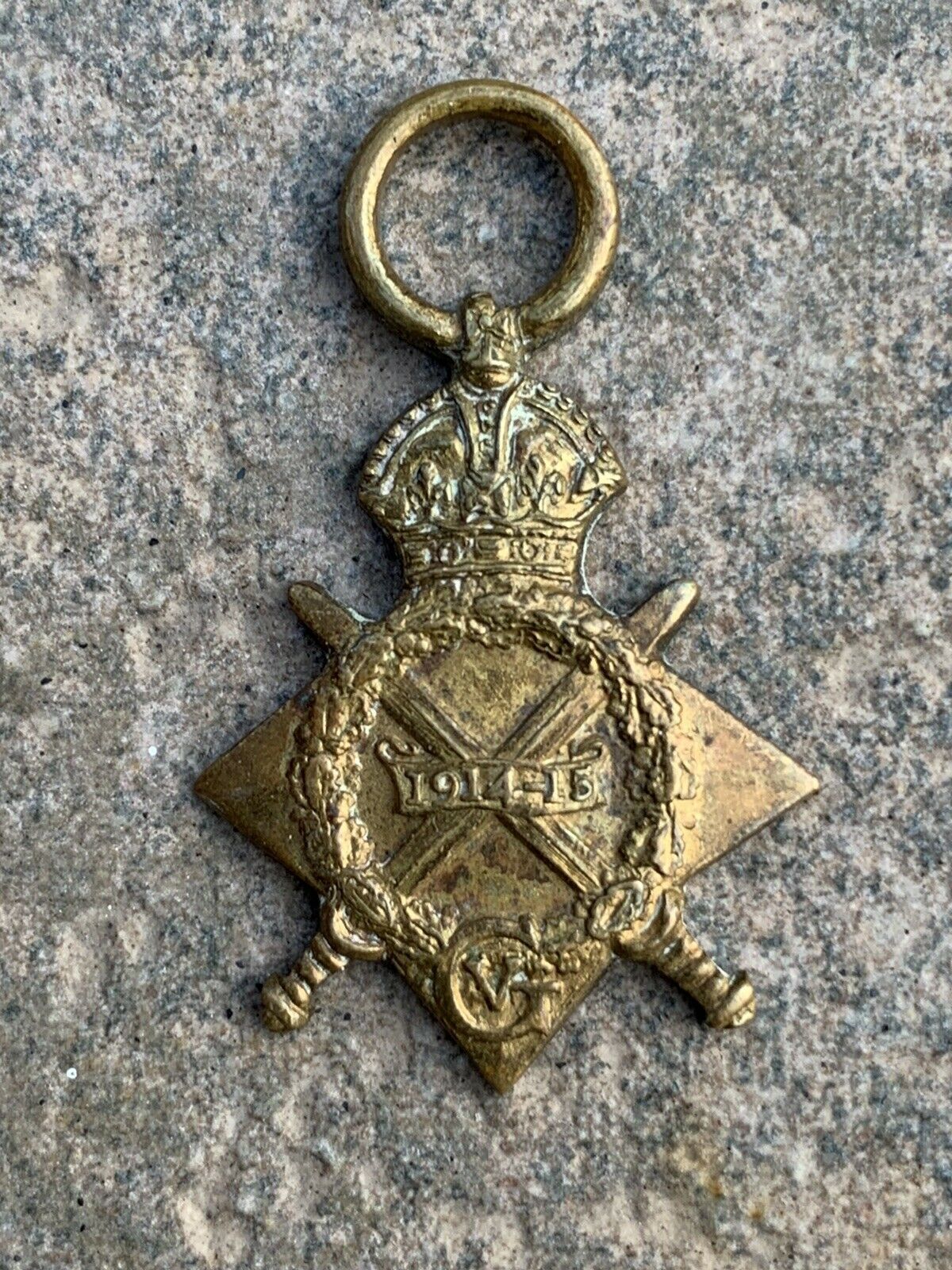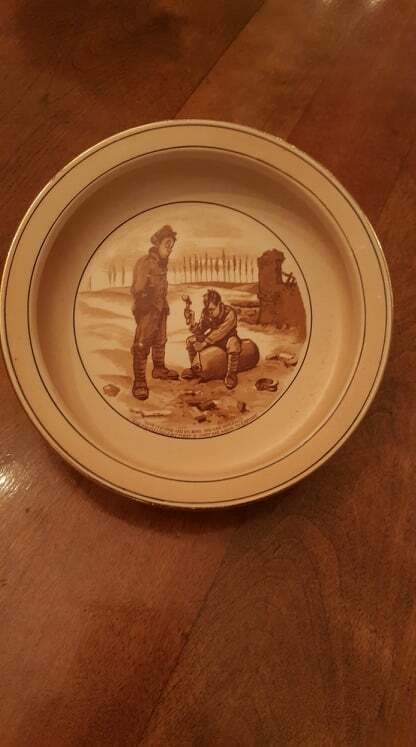-40%
SIGNED COPELAND SPODE COBALT BLUE STONEWARE MEMORIAL DECANTER – CIRCA 1916
$ 102.96
- Description
- Size Guide
Description
WONDERFUL SIGNED COPELAND SPODE COBALT BLUE STONEWARE MEMORIAL DECANTER FOR FIELD MARSHAL HORATIO HERBERT KITCHENER – CIRCA 1916Measures approximately 9 5/8” high.
It is approximately 3” in diameter.
The decanter is inscribed on the front “Field Marshal Earl Kitchener 1850 – 1916.
Excellent original condition.
No chips or cracks.
The cork has been glued into the stopper.
The words “Copeland” and “England” are impressed on the underside along with the period Copeland Spode mark.
About Field Marshal Kitchener:
Field Marshal
Horatio Herbert Kitchener, 1st Earl Kitchener
, (24 June 1850 – 5 June 1916), was a senior British Army officer and colonial administrator who won notoriety for his imperial campaigns, most especially his scorched earth policy against the Boers and his establishment of concentration camps during the Second Boer War, and later played a central role in the early part of the First World War.
Kitchener was credited in 1898 for winning the Battle of Omdurman and securing control of the Sudan for which he was made Lord Kitchener of Khartoum, becoming a qualifying peer and of mid-rank as an Earl. As Chief of Staff (1900–1902) in the Second Boer War
he played a key role in Lord Roberts' conquest of the Boer Republics, then succeeded Roberts as commander-in-chief – by which time Boer
forces had taken to guerrilla fighting and British forces imprisoned Boer civilians in concentration camps. His term as Commander-in-Chief
(1902–09) of the Army in India saw him quarrel with another eminent proconsul
, the Viceroy Lord Curzon, who eventually resigned. Kitchener then returned to Egypt
as British Agent and Consul-General (
de facto
administrator).
In 1914, at the start of the First World War, Kitchener became Secretary of State for War, a Cabinet Minister. One of the few to foresee a long war, lasting for at least three years, and with the authority to act effectively on that perception, he organized the largest volunteer army that Britain had seen, and oversaw a significant expansion of materials production to fight on the Western Front. Despite having warned of the difficulty of provisioning for a long war, he was blamed for the shortage of shells in the spring of 1915 – one of the events leading to the formation of a coalition government – and stripped of his control over munitions and strategy.
On 5 June 1916, Kitchener was making his way to Russia
to attend negotiations, on HMS Hampshire, when it struck a German mine 1.5 miles (2.4 km) west of Orkney, Scotland,
and sank. Kitchener was among 737 who died.




















